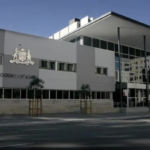The Offence of Knowingly Contravening an Apprehended Domestic Violence Order With Intent in NSW

On 24 September 2024, the Crimes (Domestic ad Personal Violence) and Other Legislation Amendment Bill 2024 was passed by both Houses of the New South Wales Parliament, amending the Crimes (Domestic and Personal Violence) Act 2007 (‘the Act’) to, among other things, insert the offence of knowingly contravening an apprehended domestic violence order (or ADVO).
The offence of knowingly contravening an apprehended violence order
The new offence is additional to the existing offence of knowingly contravening an apprehended violence order.
The existing offence applies to both apprehended personal violence orders (APVOs) and ADVOs.
It is contained in section 14(1) of the Act and prescribes a maximum penalty of 2 years in prison and/or a fine of 50 penalty units for a person who is subject to an interim, provisional or final AVO to:
- Contravene a prohibition or restriction in the AVO, and
- Do so knowingly.
At the time of writing, a New South Wales penalty unit is equivalent to $110, which means the maximum fine is $5,500.
The offence of knowing contravening an apprehended domestic violence order with intent
The new offence applies only to ADVOs.
It is contained in section 14(1A) of the Act and makes it an offence punishable by a maximum penalty of 3 years in prison for person against whom a provisional, interim or final ADVO has been made to:
- Contravene a prohibition or restriction in the ADVO,
- Do so knowingly, and
- Do so with the intention of causing the protected person physical or mental harm, or fear for their own safety or that of another person.
Section 14(1B) states that for the purposes of the offence, a person intends to cause physical or mental harm, or fear for safety, if the person knows his or her conduct is likely to cause the harm or fear.
The subsection proceeds to make clear that the prosecution is not required to prove that the person actually caused any harm or fear to the protected person.
Section 14(1D) provides that a person who is found not guilty of knowingly contravening an AVO may instead be found guilty of the general offence of contravening an AVO if the latter offence is proven beyond a reasonable doubt.
Additional provisions relating to offences of contravening an AVO
The existing section 14 provides that a person is not guilty of contravening an AVO if:
- In the case of a court imposed AVO, was not in court when the AVO was made and not validly served with the AVO thereafter,
- In the case of an AVO not ordered by the court (such as an provisional or ‘telephone’ AVO), was not validly served with the AVO, or
- The AVO was contravened to attend mediation or comply with a property recovery order.
The section further stipulates that a person whose contravention involves an act of violence must be sentenced to a term of imprisonment unless the person was under the age of 18 years or the court gives reasons for not imposing a prison sentence.
It further states that a person cannot be found guilty of aiding, abetting, counselling or procuring the contravention of an AVO in which they are the protected person.
It additionally makes clear that a police officer who suspects on reasonable grounds that an AVO contravention has occurred must make a written record of a decision not to initiate or proceed with criminal proceedings for the suspected breach.
General legal defences
General legal defences including self-defence, duress and necessity apply to charges of contravening an AVO.
In the event a person is able to raise evidence of a general legal defence, the onus then shifts to the prosecution to prove beyond a reasonable doubt that the defence does not apply to the circumstances of the case.
A person is entitled to an acquittal (a not guilty verdict) if the prosecution is unable to do this.
Going to court for an AVO?
If you have been charged with the offence of contravening an AVO, call Sydney Criminal Lawyers on (02) 9261 8881 to arrange a free first conference with an experienced defence lawyer who has in-depth, specialist knowledge of the laws, defences and legal processes regarding AVO proceedings and a long and proven track record of consistently achieving exceptional outcomes.






